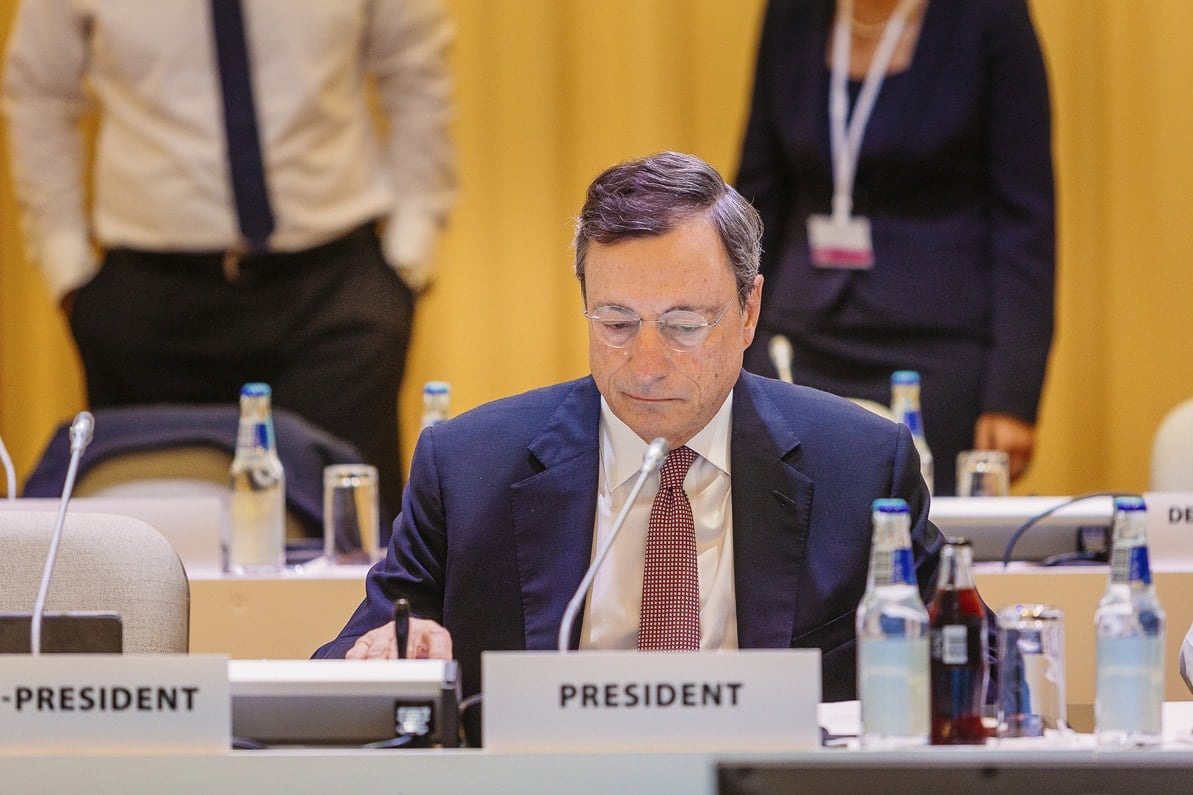Euro Could Rise after Looming Key ECB Meeting says Société Générale's Juckes.

The Euro will probably rise over the coming quarters despite attempts by the European Central Bank to keep it down says one prominent currency analyst, although other analysts don't necessarily agree.
All the indications suggest the European Central Bank (ECB) will announce a reduction in its quantitative easing stimulus programme, on Thursday 26, after October's meeting of the Governing Council.
The debate among strategists is now focused on the scale and duration of the reduction and whether the ECB will stretch things out in order to keep the Euro well-anchored.
"Buying less for longer without an explicit commitment to stop the programme on a given date is a likely compromise, which is hoped by some to push expectations of the first rate increase well into 2019 and thereby avoid putting upward pressure on the euro," says Kit Juckes, analyst with Société Générale.
Economists at the French-based investment bank think the ECB will announce a nine-month extension at EUR 25bn per month, possibly also buying debt with longer maturities.
Juckes believes the Euro's prospects of advancing are high, regardless of the taper strategy concocted by the ECB. He suggests that the emphasis on the detail of the taper misses the main point, which is that the ECB is ending stimulus, and this is against a backdrop of an improving economy.
"The idea that pushing the first rate hike further away will hold the euro down doesn’t really make sense to me in the current environment," Juckes says, noting that the common currency has been undervalued by a near double-digit number ever since the ECB first began its QE program.
The most significant element for markets is the expectation that QE will now end, and that after that, the ECB will raise interest rates, bringing policy back on a path to normalization. This, combined with solid growth and a "sizeable current account surplus," is not compatible with an undervalued Euro.
"If markets conclude that QE IS going to end in 2018, they will also conclude that the ECB remains firmly on a path back to normal policies. I don’t see how a clear path to policy normalisation, combined with solid growth and a sizeable current account surplus, are consistent with a EUR/USD rate that is 7-10% below ‘PPP’ and 9% below the average of the last decade," says Juckes.
Societe Generale predict that, despite currently being stuck in a range between 1.1660 and 1.1890, the Euro-to-Dollar exchange rate will eventually break out and move higher. Juckes and his team forecast the common currency will reach 1.2700 against the US Dollar by the end of 2018.
Not Everybody is On the Same Page
Strategists at TD Securities are less convinced the Euro will rise after the ECB meeting this month or over the medium term.
On the contrary to Soc Gen's view, the TD Securities team predict the ECB will reduce the scale of its bond purchases to around 30 billion per month and that it will keep this pace for 12 months.
An adverse reaction from EUR/USD is most likely under this outcome as it would be perceived as a so called "dovish taper". It is possibly among the more dovish forecasts out there but the TD team cite "unchanged forward guidance" and the open-endedness of the programme as grounds for thinking it might happen.
"This longer extension of QE should be coupled with unchanged forward guidance, where Draghi will emphasise that purchases will continue through December 2018 “or beyond, if necessary” and will remain firm on sequencing, with rates not rising until “well past” the end of QE. This should see any expectations for rate hikes pushed back into the second half of 2019," said TD Securities Chief Macro Strategist Jacques Douglas.
The view that the ECB will want to keep its 'options open' and that the duration - if one is set - is more significant than the pace, is also endorsed by Peter Schaffrik, a Global Macro Strategist at RBC Capital Markets.
"Our expectation is that those changes to the QE programme will be accompanied by a reinforcing of the current forward guidance particularly the language on ‘sequencing’ and on retaining the option to maintain purchases for longer than any initial extension, i.e. the ‘or beyond, as necessary’ part of the language," said Schafrik.
Get up to 5% more foreign exchange by using a specialist provider by getting closer to the real market rate and avoid the gaping spreads charged by your bank for international payments. Learn more here.
